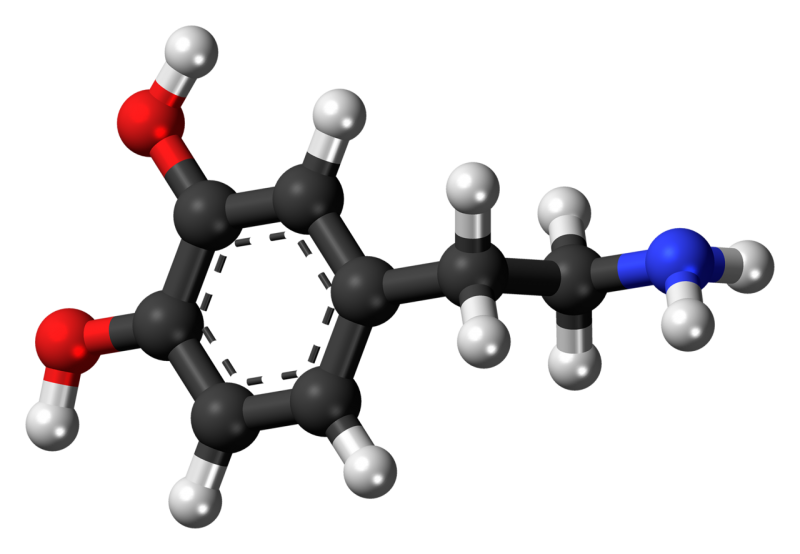March 1, 2016 report
What is dopamine's role in alcoholism? It's complicated, say researchers

A very large percentage of the health burden in developed countries is caused by alcohol abuse. There is a large population vulnerable to alcohol dependency, which has a high rate of relapse during periods of abstinence, and it is therefore difficult to address clinically.
Though neurological addiction studies have suggested the occurrence of alterations in the mesolimbic dopamine systems of alcohol-dependent people, it has remained unclear whether these neuroadaptations result in hypo- or hyperdopaminergic states. Researchers are interested in learning more about the effects of dopamine in alcoholism, because the condition has a high degree of relapse among recovering individuals and behavioral approaches are often inadequate in addressing this addictive disease.
Like many other neurochemicals, dopamine plays multiple roles in the brain and body. Among the brain's multiple dopamine pathways, a prominent one is involved in reward-motivated behavior; deficiencies in dopamine are associated with a number of conditions including addiction, depression and psychological and neurological disorders. Dopamine's importance and prevalence in multiple brain functions makes it challenging to study, and its role in addictive behavior is unclear.
A new study published in the Proceedings of the National Academy of Sciences sought to determine whether alcohol dependency results in an excess or a deficiency of dopamine in order to clarify paths for future medical treatment. The researchers developed a systematic approach to the study of neuroadaptive changes in the dopamine systems of human alcoholics and rats. In post-mortem brain samples from human alcoholics, they found a strong down-regulation of D1 binding sites, which excite associated neurons, while D2 binding sites, which inhibit target neurons, remained unaffected.
The results, as might be expected, are complicated, indicating both hyper- and hypodopaminergic states during withdrawal periods from alcohol that make recovery from alcohol addiction unpleasant and difficult for people with a predisposition for abuse. The researchers found evidence for the development of a hypodopaminergic state during protracted alcohol abstinence, among other neuroadaptive changes.
At a behavioral level, they observed hyperactivity and enhanced alcohol seeking during this period of abstinence. The transgenic rat model used for the study provided evidence that this hypodopaminergic state changes during more prolonged abstinence into a hyperdopaminergic state, as indicated by a "highly significant" reduction in D1 binding sites in striatal tissue, with no change in D2 binding sites.
The authors write, "Taken together, our studies provide convergent evidence for a hyperdopaminergic state of the reward system during protracted abstinence. This hyperdopaminergic state is associated with increased motor activity and augmented alcohol-seeking and use. We suggest that an enhanced risk for relapse exists both during acute withdrawal and long into protracted abstinence, but, according to our data, this vulnerability can be associated with either hypo- or hyperdopaminergia."
The link between early withdrawal phenomena and dysregulations that occur later remains unclear. The researchers note that their results warrant future clinical studies into whether this hyperdopaminergic state is a marker for vulnerability to relapse and whether it might provide a path to specific types of dopamine-related interventions.
More information: Convergent evidence from alcohol-dependent humans and rats for a hyperdopaminergic state in protracted abstinence. PNAS 2016 ; published ahead of print February 22, 2016, DOI: 10.1073/pnas.1506012113
© 2016 Phys.org

















